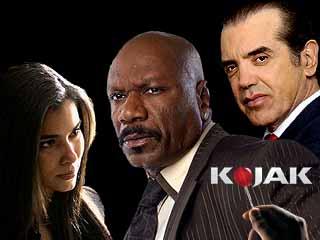 Because my large, extended family boasts of many military veterans and because I'm a Veterans History Project Official Partner/New York, I often find myself answering two common questions about Memorial Day and Veterans Day:
Because my large, extended family boasts of many military veterans and because I'm a Veterans History Project Official Partner/New York, I often find myself answering two common questions about Memorial Day and Veterans Day:- Exactly what and when are they? and
- What's the difference between them?
- WHAT:
- WHEN:
It's easy to confuse all of these interrelated holiday names, aliases, dates and meanings, even after reading about them on official USA government sites, such as US Information Agency>>Celebrate! Holidays in the USA and USA.gov>>American Holidays. For one thing, articles such as the US Department of Veterans Affairs' "History of Memorial Day" and "History of Veterans Day" highlight the fact that both holidays have undergone changes in name, date, and scope since their inceptions.
Consequently, as Wikipedia>>Memorial Day notes, in addition to the federally recognized remembrances, some communities continue to honor the original traditions, while still others follow parochial practices, as well as rites unrelated to the holiday's intention. For example, my family adheres to a popular Memorial Day tradition of decorating the graves of all loved ones who predeceased us; we don't confine our commemorations to military veterans or those who died during wartime. (Of course, most of my family's plots feature veteran and civilian graves situated side-by-side, or stacked atop each other.)
Further diffusing Memorial Day's meaning is its extension, to three days, of the weekend that symbolically starts the summer. Throughout the USA, May's final weekend kicks off many outdoor (and some indoor) activities, and the beginning of boating, beach and barbecue season. Consequently, most Americans (myself included) mark Memorial Day weekend not only as a time for reflection and remembrance, but also for recreation.
To "help re-educate and remind Americans of the true meaning of Memorial Day," the White House passed a "National Moment of Remembrance" resolution in December 2000. It asks all Americans "to pause for one minute at 3:00 p.m. (local time) on Memorial Day, to remember and reflect on the sacrifices made by so many to provide freedom for all."
Like Memorial Day, Armistice Day - Veterans Day's precursor in the USA - also serves mixed purposes, and thereby generates some confusion. The holiday was initially conceived as an international commemoration of the end of World War I. However, as Wikipedia>>Armistice Day notes, World War I ended on different days in different locations, and many countries have adapted the Armistice Day concept in a variety of ways:
Armistice Day is the anniversary of the symbolic end of World War I on 11 November 1918. It commemorates the armistice signed between the Allies and Germany at Rethondes, France, for the cessation of hostilities on the Western Front. The cease-fire took effect at eleven o'clock in the morning — the "eleventh hour of the eleventh day of the eleventh month". While this official date to mark the end of the war reflects the cease fire on the Western Front, hostilities continued in other regions, especially across the former Russian Empire and in parts of the old Ottoman Empire.
The date was declared a national holiday in many allied nations, to commemorate those members of the armed forces who were killed during war. An exception is Italy, where the end of the war is commemorated on 4 November, the day of the Armistice of Villa Giusti. Called Armistice Day in many countries, it was known as National Day in Poland (also a public holiday) called Polish Independence Day. After World War II, the name of the holiday was changed to Memorial Day[sic] in the United States and to Remembrance Day in countries of the British Commonwealth of Nations. Armistice Day remains an official holiday in France. It is also an official holiday in Belgium, known also as the Day of Peace in the Flanders Fields.I hope this write-up (and its linked resources) fulfilled its four-eyed mission: to inform, instruct, intrigue and inspire. If you'd like for me to address your group, or feature you in my media or cultural documentation programming, feel free to contact me.###







